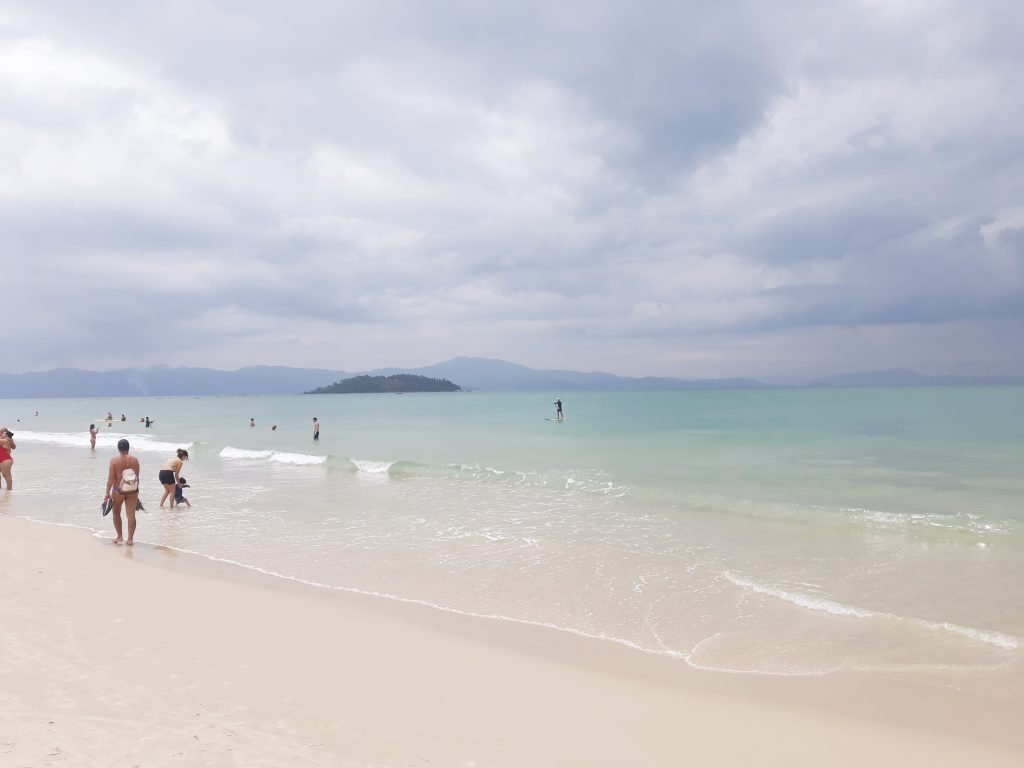Why I would write about the worst places to retire in Europe? Well… look at your retirement savings.
Now imagine watching 30% of it disappear due to double taxation….because you chose the wrong European country.
I’ve helped hundreds of American retirees relocate to Europe, but I would not recommend these three countries below, because they might cost you your health, wealth, and peace of mind.
After crunching the numbers on taxation, healthcare quality, infrastructure and connectivity, weather and climate, safety and easiness of living, these destinations consistently rank at the bottom
You will discover the European nations where retirement conditions for Expats, especially Americans, are objectively worst – backed by cold, hard data on everything from tax treaties to quality of life indices. Additionally, it’s crucial to consider factors such as healthcare accessibility and the cost of living in these countries. Expats should also be aware of legal requirements and residency options. Here, we’ll provide insights on what to know before moving to Europe to ensure a smoother transition.
And also according to personal stories of people who lived there.
If you’re planning on moving to Europe, this information could save you from a costly mistake.
Ready?
We start with Bosnia & Herzegovina
Because that is where tax troubles meet healthcare headaches.
But first of all, I am not trying to say that any of these countries I will mention today are essentially bad.
I have very good memories from my stay in Bosnia – they have one of the best Cevapis I ever tasted.
My point is that these places are just not among the best for an expat retiree. Let’s examine why Bosnia takes the unenviable position as Europe’s third-worst retirement destination.
What if I told you that your hard-earned retirement savings get hit not once, but twice due to taxation?
That’s exactly what happens to American retirees in Bosnia, where the absence of a tax treaty between the United States means your income gets taxed by both countries. This is a significant financial burden that compounds over time.
Looking at the raw data, Bosnia’s Quality of Life Index – a very useful measure calculated by Numbeo – sits at 134.8. It improved a lot recently – just a couple of years ago it was 124 – but it is still far lower than countries like Romania, Bulgaria or Uruguay.
This quality of life index is calculated on the basis of things like safety, property prices, healthcare, traffic, pollution. In some of them, like property prices, Bosnia actually does pretty good, but in others like pollution or healthcare, it does terribly.
So Bosnia is an affordable country, with a cost of living 50.1% lower than the United States. A family of four can manage on about $2,060 monthly without rent.
Sounds attractive, right?
But here’s where the calculation gets complicated. The initial savings quickly evaporate when you factor in things like the healthcare situation.
Bosnia’s Human Development Index of 0.779 tells an important story—one of substantial gaps in healthcare quality and accessibility. We are talking about a human development index (or HDI) below Iran or Sri Lanka.
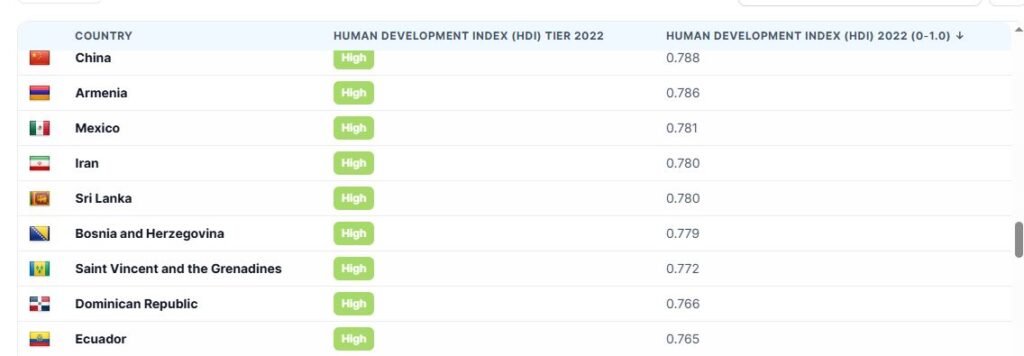
Life expectancy is a major component of the HDI, serving as a proxy measure for how good is the healthcare and how healthy is life there. Bosnia has a life expectancy of just 76 years – for men, it is even lower, 74 years – these numbers are similar to Brazil and almost 8 years below Italy or Spain.
And while in countries like Brazil or Mexico, life expectancy is shortened because of the rampant violence, this is not the case of Bosnia, which is a very safe country. The life expectancy in this country is shortened because of the low healthcare quality.
Unlike countries with robust healthcare systems, Bosnia presents challenges for those requiring regular medical attention or specialized care. For retirees who often have ongoing medical needs, this isn’t a minor concern but a potential deal-breaker.
Then there’s the climate factor. Sarajevo’s winter temperatures hover around freezing, typically 0°C to -2°C. For retirees with conditions like arthritis, these cold months aren’t just uncomfortable—they can actively worsen health issues and limit mobility during significant portions of the year.
Now, remember that I said Bosnia is safe?
Yes, that is what most numbers say, and when I was there, I didn’t feel any danger. Below you can see Bosnia’s homicide rates. It is better than France.
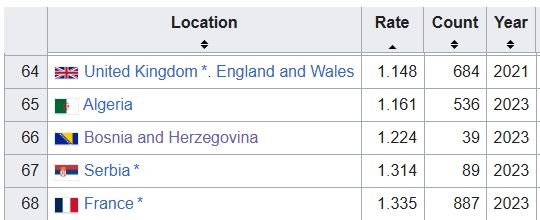
HOWEVER…. The U.S. State Department hasn’t issued its Level 2 travel advisory for Bosnia without reason. You might think these warnings about crime and terrorism coming from the US are an exaggeration, but still, they translate directly into higher insurance premiums for American retirees, adding another hidden cost to the retirement budget.
The visa situation presents additional hurdles, with more restrictive processes than you’d encounter in EU countries. Beyond paperwork, there’s the isolation factor. Bosnia presents significant language barriers. Bosnian, Croatian, and Serbian dominate daily life, with English proficiency remaining limited in many areas.

Personal accounts from American expats present a mixed picture. They often praise Bosnia’s stunning landscapes and the genuine warmth of local people. However, these same expats consistently mention the healthcare access problems and the difficult-to-learn language as factors that ultimately diminish their retirement experience.
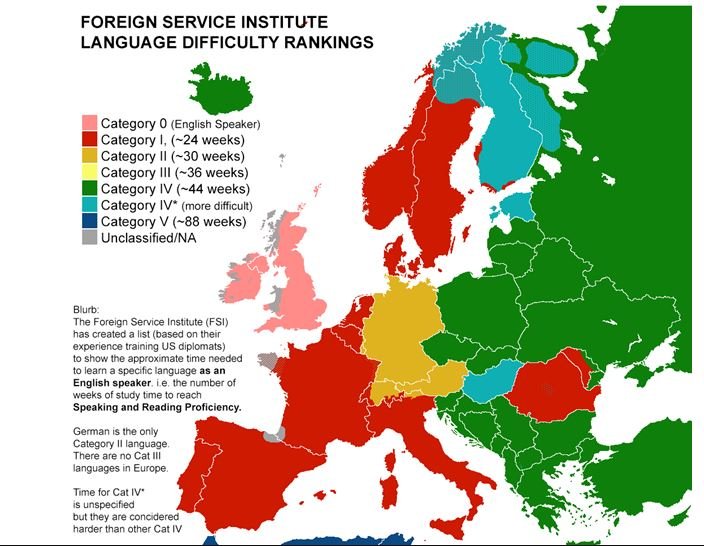
This is a similar situation we found in our next country – but with a VERY surprising, and even more complicated, twist.
From Bosnia we jump to Kosovo – also a former part of Yugoslavia.
Kosovo
And this country presents a mathematical paradox for American retirees: how can a place with expenses 55% lower than the US simultaneously can cause so many financial headaches for expat residents?
The answer lies in its Human Development Index of 0.757 – among Europe’s lowest – a healthcare system that forces many expatriates to seek treatment abroad at their own considerable expense, and the fact that the entire country is in a legal limbo that you will understand very soon.

In reality, the fact that I am calling Kosovo a country might raise protests from some of my viewers – if you think I am wrong to do so, please let me know in the comment section.
Now, going back to the subject, when you first glance at Kosovo’s numbers, they seem attractive. A couple can live comfortably on US$1150 per month – a substantial reduction compared to American costs. Even in the cheapest US state – West Virginia – a couple would need almost 4 times this value to live comfortably.
But retirement planning requires looking beyond initial affordability to what economists call “quality-adjusted living costs,” and this is where Kosovo’s true picture emerges.
Kosovo’s Quality of Life Index by Numbeo stands at just 133.33, which is even lower than Bosnia’s already concerning 134.8 This isn’t just a number – it reflects real-world conditions that become increasingly important as you age.
The healthcare system particularly illustrates this problem. While basic medical care is available, specialized treatments for conditions common among retirees are often simply unavailable – and doctors from Kosovo are migrating to other better-paying countries.
This creates an unexpected financial burden many American retirees don’t anticipate until they’re already relocated. Imagine developing heart problems or needing specialized diabetes care, only to discover you must travel to another country for treatment – at your own expense.
Then there is the issue of Pollution. Here, I make a disclaimer: some of you who live in places with fresh air and little suspended particulate matter (also known as PM) probably underestimate how bad pollution can be.
I live in one of the most polluted European countries – during winter, it is hard to breathe sometimes.
With age, pollution charges an increasingly high price for your health.
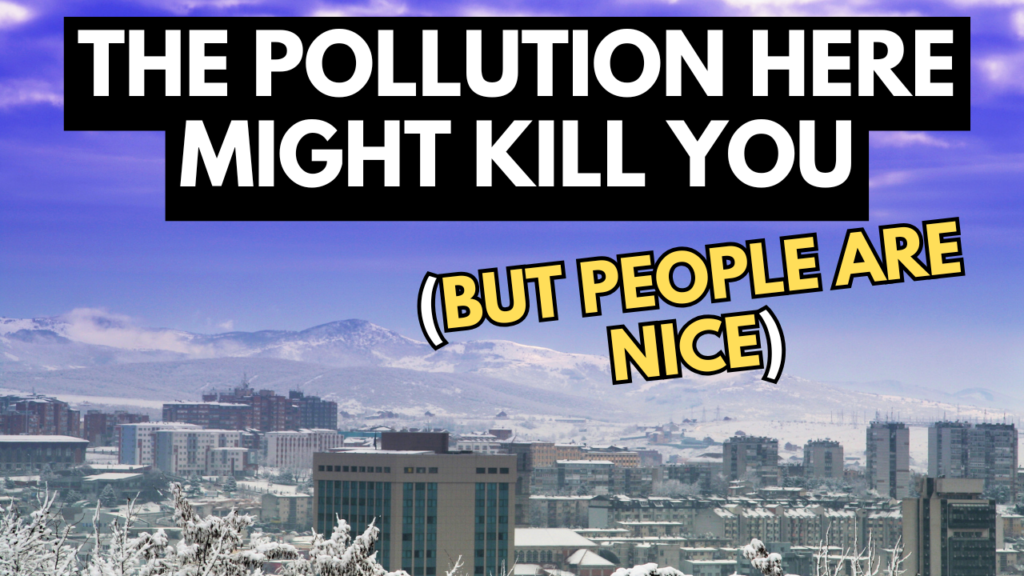
Kosovo’s air quality is heavily impacted by its coal power plants, Kosova A and Kosova B, which are among Europe’s most polluting for PM2.5 and NOx emissions. These plants, located near Pristina, emit significant pollutants that affect the capital and surrounding areas. Other industrial activities, like cement factories and ferronickel plants, also contribute to the high pollution levels.
The political landscape adds another layer of complexity.
Ongoing tensions with Serbia directly impact everything from property values to insurance premiums. A good real estate deal can turn bad fast if unrest hits the market. Insurers charge more due to risks.
In February 2025, elections gave Prime Minister Albin Kurti a big win, pushing for more military spending—1 billion euros for gear like helicopters and drones. That month, Kosovo Police raided a Serbian group in the north, grabbing weapons. Talks with Serbia, backed by the EU, stalled after Kosovo banned the Serbian dinar.
At the end, the EU criticized Kosovo in January 2025 for not easing tensions, keeping the region shaky and diplomatic costs high.
Then comes winter with its own challenges.
Pristina averages between -2°C and 0°C during colder months. This might not sound extreme until you experience the reality of heating infrastructure that falls far below Western standards.
Kosovo is one of the two countries in Europe with the highest percentage of inadequate home insulation – the other being Bulgaria.
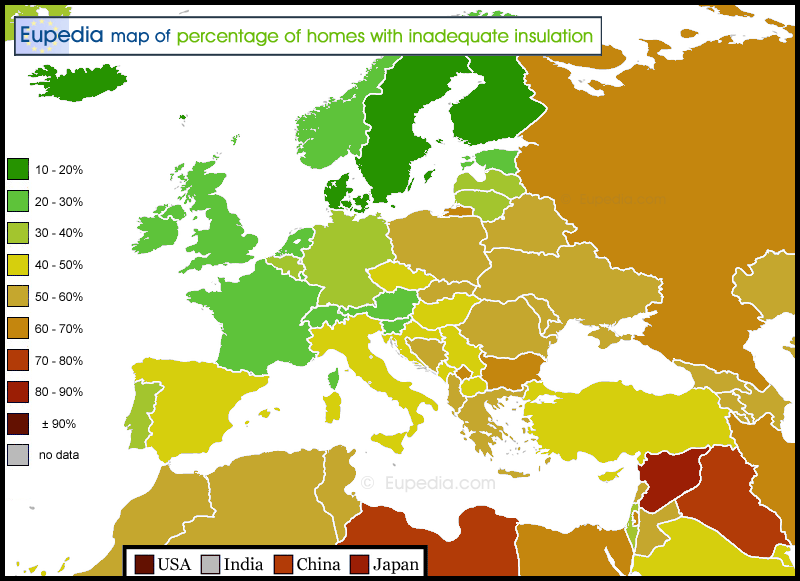
For retirees with arthritis or other temperature-sensitive conditions, these winters can become both uncomfortable and potentially dangerous.
Now, remember when I said that the entire country of Kosovo is in a legal limbo?
This is because only about half the world—114 out of 193 UN countries—recognizes it as a real nation.
Serbia still claims it as its own, and big players like Russia and China say Kosovo is not a real country. This limbo started after Kosovo broke away in 2008, but the UN can’t fully back it since Serbia and its allies block the way. In March 2025, the EU’s still trying to broker peace, but the negotiations had been shaky, to say the least. That means no clear laws for trade or travel, scaring off investors and keeping bureaucracy tricky for everyone there.
And that directly affects the next issue: taxation, which creates additional financial headaches. Without a tax treaty between Kosovo and the United States, retirees may face double taxation on their retirement income.
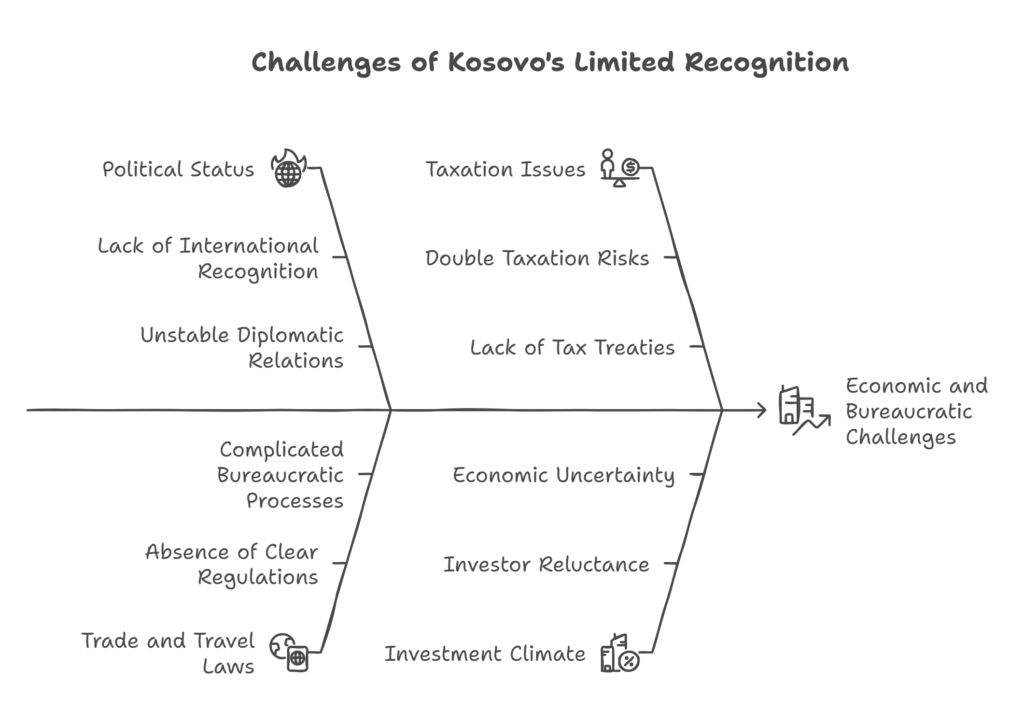
On a positive side, however, expats in Kosovo tend to say that the locals are quite friendly – this is what one expat there told us:
“I was surprized how easy it was to blend in. You always carry that notion that you are different than them but it was so easy to blend in. After two months or so, I already became “i poshtit”.”
Just as in Bosnia, perhaps most overlooked in retirement planning is the social isolation that can develop in a country where Albanian and Serbian are the primary languages, with limited English proficiency outside major tourist areas.
The next country – the worst to retire in Europe – has a much more popular language. A language that you might even speak! However, other issues are so complicated there…
By the way, if you’re reading this article, you’re probably planning to travel abroad for a longer time, and you want to save money and pay fewer taxes. I’ve written three top-rated Amazon books on living abroad, based on my experiences and insights from hundreds who’ve done the same – You can purchase them through this link.

Belarus: The Data-Backed Case for Europe’s Worst Retirement Destination
Yes, this place is the undisputed champion of our “worst retirement destinations” list.
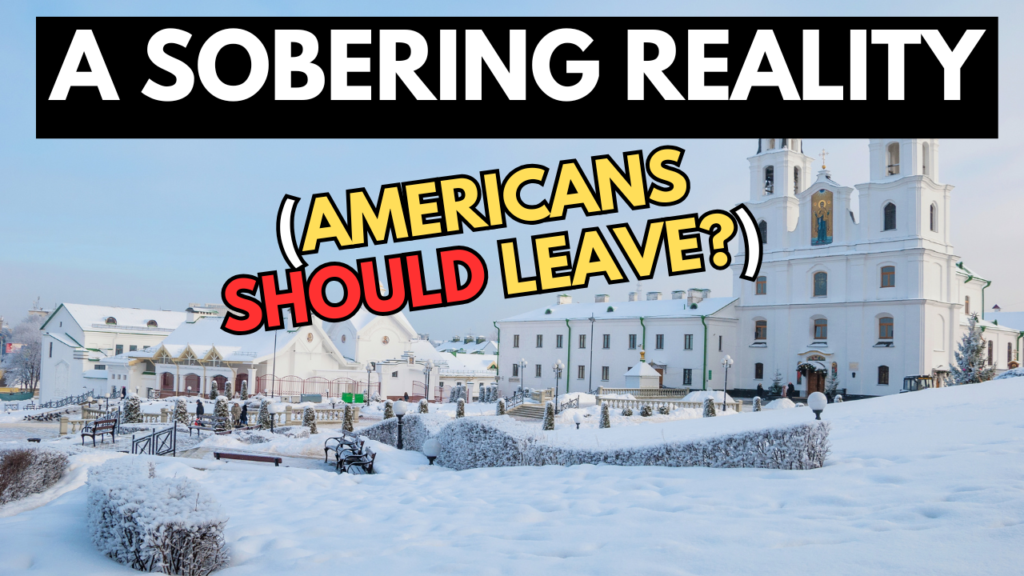
When a country carries a Level 4 travel advisory from the US State Department – literally the highest risk level possible – you know we’re not talking about minor inconveniences. This isn’t a “be careful in certain neighborhoods” warning; it’s a clear “do not travel there” directive.
And let me be clear because we are talking about a government that sent fighter jets to intercept an airplane from Ryanair flying from Athens to Vilnius, and that happened to pass over their airspace- just because one person inside the plane criticized their government.
So in Belarus, if you voice anything that can be considered dissatisfaction with their government, you might be under serious risk – no jokes.
And this kind of thing might affect you in other ways.
US – Belarus Relations
In 2023, the US Treasury announced something quite extraordinary – a partial suspension of the tax treaty with Belarus, effective through December 2026. The US also closed its embassy in Belarus and ordered all its staff to leave the country.
What does this mean in practical terms?
American retirees – and not only – could find themselves caught in a perfect storm of double taxation, visa issues, insurance claims denied, and many other problems that definitely you don’t want.
But even if you are not an American, or you have double citizenship, and your other country still has an embassy in Belarus.
Even so, you are not in a much better situation.

Let’s talk a bit about climate
(which, by the way, is not even the worst problem there, despite the brutal Belarusian winter.)
We’re talking about average temperatures between -5°C and -8°C, with up to 125 days of snow annually and accumulations reaching 30 centimeters. For seniors, especially those with arthritis or cardiovascular conditions, these aren’t just uncomfortable statistics – they represent genuine health hazards that could exacerbate existing medical conditions.
Now, you might be thinking:
“But the cost of living is 61% lower than in the US!”
or
“Minsk, the capital and most expensive city in Belarus, is still 75% cheaper than Chicago!”
And that is true – a couple would need just US$1150 per month to live comfortably in a mid-sized city. That would easily put Belarus among the cheapest places to retire in Europe.
However, this affordability quickly loses its appeal when you consider the other factors that most people are not very aware of – things that are very particular to Belarus.
The healthcare situation, for example, has two sides. On paper, healthcare is free for registered residents, and with 82.4 hospital beds per 10,000 in 2019, higher than neighbors like Poland (65.2).
However, the high number of doctors might not compensate for the aging infrastructure and lack of modern equipment.
There is also the language barrier – unless you speak Russian – Imagine trying to explain complex medical history or symptoms when neither you nor your doctor fully understands the other.

And since we are talking about infrastructure…
Aging infrastructure systems, particularly outside Minsk, could affect daily life, with utilities and transportation sometimes unreliable.
This is something that I constantly observe in this part of Europe – the capitals are actually an entire universe ahead of the countryside.
Cities like Minsk, or Budapest, or Warsaw are way richer than the rest of Belarus, Hungary, or Poland. And that happens because these are former communist countries, and communists heavily concentrated power and money in the capitals.
So, with the risk of being repetitive, again: the political situation in Belarus creates perhaps the most significant obstacle for American retirees. There are documented risks of arrest for what might be perceived as political activities – activities that would be considered normal civic engagement in the United States. International sanctions further complicate everything from banking to travel, creating daily hurdles that would exhaust even the most patient retiree.
The Quality of Life Index of Belarus is 133.57, very similar to Kosovo’s 118.9, this mathematical advantage completely evaporates when factoring in the practical realities facing American expatriates.
While Kosovo is probably the most pro-American country in Europe, Belarus is in the opposite extreme.
The combination of political repression, harsh winters, healthcare access challenges, and tax complications creates an environment fundamentally hostile to retirement goals.
The numbers don’t lie, but in Belarus’s case, they also don’t tell the complete story. Beyond the statistics lies a retirement destination where basic freedoms Americans take for granted simply don’t exist. When weighing all factors – from financial to physical safety to quality of life – Belarus establishes itself as Europe’s worst retirement destination for American expatriates, and the evidence supporting this conclusion is overwhelming.
Of course, you might disagree, and in fact, I am very curious to know your opinion in the comment section.
Because that is the most incredible thing about Europe – a continent that I learned to love – some countries will cost you your health, wealth, and peace of mind.
Other places, whoever, will give you the chance to experience the best climate in the world, for less than half of the price of the US – and all that while living longer, and paying lower taxes.
Yes, you heard it right – a longer, healthier life, with lower taxes. If you are curious about this, check out this article with the best places for early retirement in 15 European countries.
It is the most important video I ever made – because it answers more questions than any other.
Levi Borba is the founder of expatriateconsultancy.com, creator of the channel The Expat, and best-selling author. You can find him on X here. Some of the links above might be affiliated links, meaning the author earns a small commission if you make a purchase.

